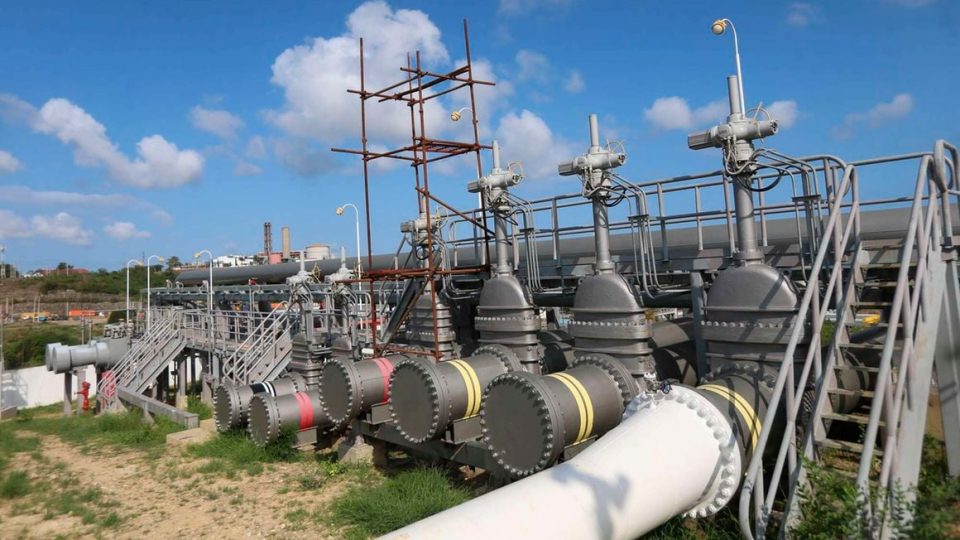Kenya has lost $200 million worth of exports to Uganda, its largest regional market, since October 2023, new data shows.
And experts warn that it will lose more going forward, as the fight over petroleum products imports escalates, with major oil infrastructure at the risk of underuse.
Last week, Uganda announced that it was moving to Tanzania for oil imports after reaching a dead end in the quest to have its national oil marketer, Uganda National Oil company (Unoc), registered in Kenya to facilitate imports via the Mombasa port.
Ugandan Energy Minister of Energy Ruth Nankabirwa told reporters in Kampala on Tuesday that Kenya’s continuous frustration of the Unoc deal is threatening Uganda’s fuel supply stability.
“You can’t sit there and be at the mercy of one person. So far, I have met the President of Tanzania. My president sent me as an envoy and we are in discussions,” she said.
“So, we know that the alternative route could be expensive because of the logistics that are involved but we also know that there is a possibility of a negotiation with the government of Tanzania, to waive some taxes so that their sister country can be able to do business.”
According to the Daily Monitor, Ms Nankabirwa said Kenya’s President William Ruto had on several occasions shown positivity towards Uganda’s move, “but I don’t know where all this frustration is coming from”.
“The president sent me to meet President Ruto four times and he was so supportive on all the times then he sent me, my brother Chirchir [Davis], the Minister of Energy and some [Kenyan] people jumped in court, what do you do if you are sued? You wait for the ruling. So we have been talking and we are continuing to talk but now, we have a time frame because we feel the pump price in Uganda should be lower,” she said.
This decision, if it stands, threatens Kenya’s investment of $385 million Kipevu Oil Terminal 2 (KOT2) in Mombasa, which was opened last year, and $170 million fuel jetty in Kisumu.
The Kenya government put up the infrastructure, targeting to double the capacity of handling transit petroleum products from the current 35,000 tonnes to Uganda, Rwanda and Burundi.
The KOT2 can handle up to four vessels at a time, compared with the old terminal, which can handle only one.
The new terminal was developed to improve handling of petroleum products to attract more business from other regional countries to compete with Dar es Salaam.
The terminal is expected to cut the cost of petroleum products by reducing the cost of demurrage or the extra time taken to load and unload cargo, a big factor to the high cost of oil in the region.
In Kisumu, the 95-metre oil-loading jetty owned by the Kenya Pipeline Company, whose construction was completed in February 2018, was only put into use in January 2023, due to a delay to complete the construction of a corresponding facility in Uganda.
It was not until January 3, 2023 when the first consignment of petroleum products arrived at the Mahathi jetty via the MV Kabaka Mutebi II, bringing to an end the five-year wait.
Mahathi Infra (Uganda) Ltd had struck a deal with TotalEnergies and 19 other oil-marketing companies for the use of the Kisumu facility and its facility in Uganda in the project that was partly funded by Equity Bank.
But Kampala suspended its contract with Kenya, saying since the introduction of government-to-government (G2G) importation of fuel deal with the Gulf states, it has got a raw deal.
Uganda is Kenya’s top export market for imported oil products (super petrol, diesel, kerosene and Jet A 1-aviation fuel). It imports about 900 million litres of petroleum products per month through Kenya.
Now, it is counting on the 60,000 barrel-per-day refinery to process some of its crude domestically to boost employment and benefit from technology transfer and Energy Minister Ruth Nankabirwa says they have picked Dubai firm Alpha MBM Investments Llc to build the $4 billion facility.
Uganda has also issued a licence to China National Offshore Oil Corporation to produce liquefied petroleum gas at a plant to be constructed in the Kingfisher development area that it operates.
Kingfisher is one of Uganda’s two commercial oil development fields. The second, Tilenga, is operated by TotalEnergies.


